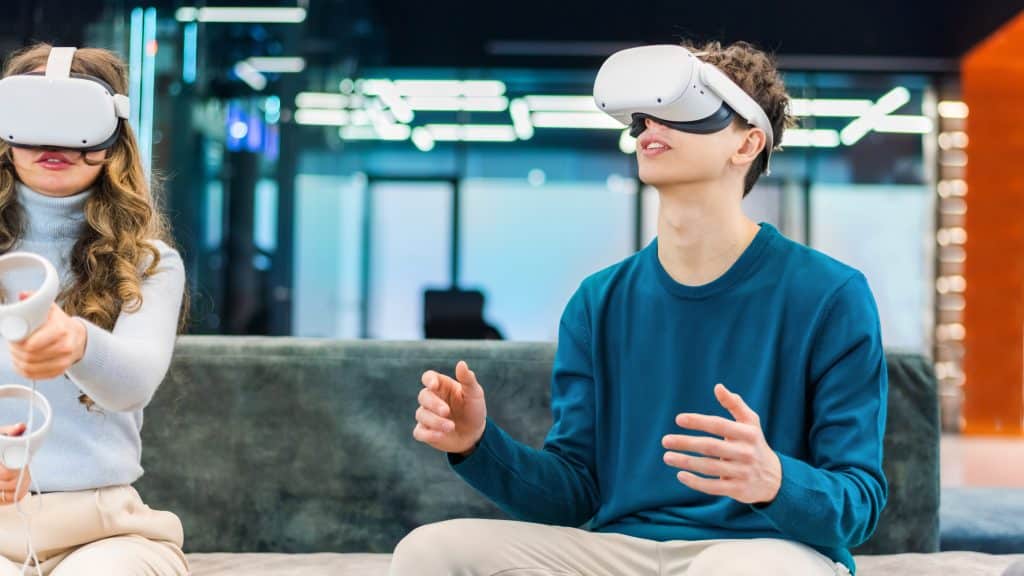Virtual reality (VR) platforms are redefining how we perceive entertainment and business. By blending cutting-edge technology with immersive gameplay, VR casinos create unique, engaging experiences. They also open doors to lucrative business ventures, expanding the boundaries of online gaming.
How VR Enhances the Online Casino Experience
Virtual reality revolutionises the traditional online casino setup. Instead of flat screens and static interfaces, players step into a fully interactive world. Advanced VR headsets like the Meta Quest 3 or HTC Vive bring unparalleled immersion. Users can roam around a virtual casino, like Winspirit, interact with other players, and experience lifelike table games.
Realistic sound effects and 3D environments enhance the sensation of being in a physical venue. Dealers in VR operate as lifelike avatars, responding in real-time. This level of detail fosters trust and engagement. Games like poker, blackjack, or roulette come alive with realistic movements, gestures, and detailed tables.
Innovative features like haptic feedback add another layer of excitement. When rolling dice or spinning a wheel, players feel subtle vibrations through controllers. VR platforms also offer personalisation, allowing users to customise their avatars, virtual spaces, and game interfaces.

The Business Opportunities in VR Casino Technology
Virtual reality websites, like foreign online casinos, unlock significant business potential. The global VR market is projected to reach $87.97 billion by 2030, growing annually at over 15%. This explosive growth fuels opportunities for operators and developers alike.
Key advantages include:
- Diverse Audience Appeal: VR attracts tech enthusiasts, gamers, and traditional casino fans. Engaging interfaces and multiplayer features draw younger demographics.
- New Revenue Streams: Subscription models, microtransactions, and exclusive in-game purchases become viable income sources.
- Market Expansion: VR platforms eliminate geographic barriers, allowing operators to tap into global markets. Gamers in remote areas can access premium casino experiences.
- Innovative Partnerships: Collaboration with gaming studios and tech firms boosts creative game designs. Cross-promotion with other industries, like music or sports, expands audience reach.
Challenges and Innovations in VR Casino Development
The development of a seamless VR casino experience faces several technical and logistical challenges. Hardware costs, internet speed requirements, and user accessibility are some of the immediate concerns. VR headsets are still expensive for many users, with advanced devices costing upwards of £300.
Latency and connectivity issues also disrupt smooth gameplay. Low internet speeds disrupt interactions, breaking immersion. Developers combat this with edge computing and optimized networks. Innovations like 5G connectivity dramatically reduce delays.
Creation is still challenging but essential. Designers need to create realistic, interactive environments that keep users engaged. VR casino games demand even more detail than regular 3D titles. However, tools such as Unreal Engine 5 and Unity ease the development process, enabling studios to push creative boundaries.
VR casinos will change the entire concept of entertainment and business. The reasons for their popularity include immersive gameplay and accessibility from any part of the world. They open new revenue streams, partnership opportunities, and ways to expand into new markets for operators. While cost and regulation remain issues, innovation continues to push the industry forward.
Virtual reality casinos represent not just a technological leap but a cultural shift in how we experience digital entertainment.
